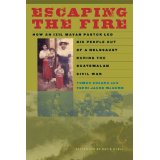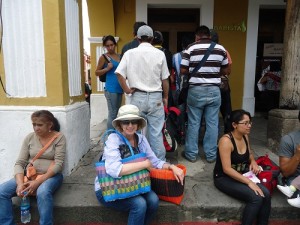The average per-capita income in Guatemala may be $5,200, but take a ride around the upscale neighborhoods of Guatemala City or Antigua; dine at a fine restaurant and stay at a luxurious hotel; go on a shopping excursion to Tikal Futura; or get yourself invited to the symphony, or an art opening, or a fancy wedding, and you’ll see that plenty of Guatemalans earn more than that. Way more. This article in Bloomberg tells the tale of one such wealthy person: Mario Lopez Estrada, founder of Guatemala’s ubiquitous mobile phone provider, TIGO, and the country’s first billionaire.
This June, out driving with a friend en route to Lake Atitlan, I saw miles and miles and miles of white wooden fences, much like the ones you might see in horse country in Kentucky. “What’s with the fences?” I asked. My friend answered, “The guy who started TIGO owns all that land. The fence keeps people out.”
And I said: “Wouldn’t it be amazing if that guy turned out to be the Guatemalan equivalent to Bill Gates? A brilliant, smart guy with lots of money, who dedicates a large part of his energy and fortune to promoting education, health, and quality of life for the millions of his fellow Guatemalans who need it. Wouldn’t it be amazing if that guy turned out to be a visionary and a leader, with so much money he couldn’t be corrupted.”
My friend smiled, the indulgent smile of one who has seen it all, and knows better. “Maybe.”
Oh well. I can dream, can’t I?



 ShareThis
ShareThis


